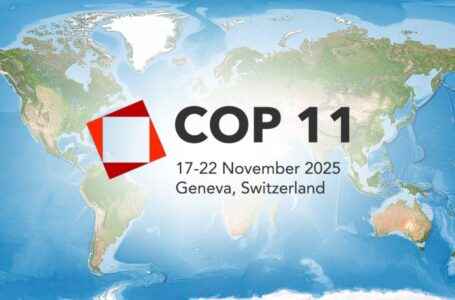Experts have urged the World Health Organization (WHO) to incorporate harm reduction into its tobacco policy ahead of an upcoming summit in November, citing it as a proven method to reduce deaths caused by smoking.
During a briefing in Makati City hosted by the Consumer Choice Center (CCC), global and Filipino experts called on the WHO Framework Convention on Tobacco Control (FCTC) to “fully integrate harm reduction into tobacco control.”
“The evidence is clear: combustion kills, not nicotine. Safer alternatives exist and are effective. This is the time to stand with science and evidence,” a joint statement declared.
CCC president Fred Roeder said many countries have seen positive results with harm reduction approaches, yet these strategies remain “largely unexplored in Southeast Asian policy discussions.”
He cited a report by Public Health England showing that vaping is 95% less harmful than cigarettes, noting that safer alternatives are paradoxically “attacked more fiercely than cigarettes.”
“Nicotine consumers are not the enemy,” said Anton Israel, president of the Nicotine Consumers Union of the Philippines (NCUP). “We need honest education that reaches the grassroots so smokers understand that less harmful alternatives exist.” He added that WHO must “not punish us for failing to quit. Help us succeed.”
Dr. Lorenzo Mata of Quit for Good stressed that harm reduction means “offering safer alternatives when abstinence isn’t possible, supporting incremental improvements instead of demanding perfection, and building trust instead of shame or fear.” He said Republic Act 11900 proved that regulation, not prohibition, is the correct public health approach.

Urologist Dr. Rogelio Varela warned that tobacco smoke causes not only COPD and lung cancer but also bladder and kidney cancers.
“For most Filipinos, tobacco harm reduction is something that’s foreign… So harm reduction will help us somehow decrease the amount of harm that’s being brought about by these factors,” he said.
Economist Christopher Cabuay revealed that smoking costs the Philippines nearly $10 billion a year. “The model I developed shows that fewer people would get sick, productivity losses would decline, and health care spending would go down,” he said, estimating $3.4 billion in potential savings.
Nancy Loucas of the Coalition of Asia Pacific Tobacco Harm Reduction Advocates (CAPHRA) criticized WHO for treating safer nicotine alternatives as “threats instead of solutions.”
Michael Landl of the World Vapers’ Alliance praised Sweden’s tax system, saying, “Sweden is about to become the first smoke-free country in the world. They achieved this not through bans or punishment but by giving people options.”




















